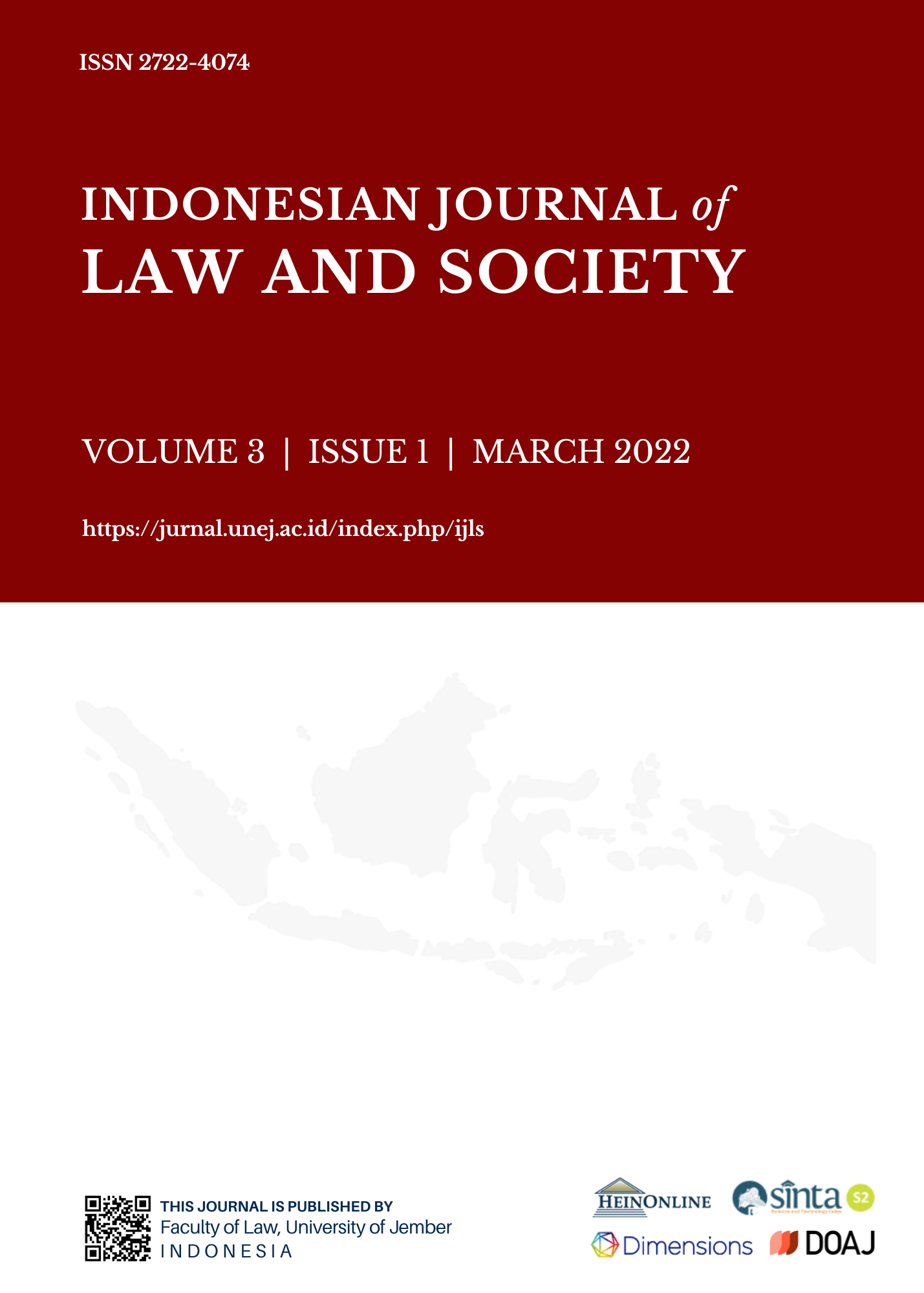Legal Transplant to Decolonization in the Evolution of India’s Corporate Legislation
DOI:
https://doi.org/10.19184/ijls.v3i1.27625Abstract
In India, most existing legislation resulted from a "legal transplant" that gradually occurred in colonial times. India is a common law country that follows the colonial pattern of law-making. Most of the legislation owes the British East India Company, including regulation of modern business corporations. This paper aimed to examine the history and formation of corporate legislation in India and its deviation from the legislation of the origin country, England. It pointed out the relevance of local conditions in India that led to a different approach to forming corporate law in India. The local conditions in India prevailed over the process of legal transplant. The social, economic, and political factors played a significant role in forming corporate law in India. To such an extent, India deviated from the English company laws and followed the trajectory of different jurisdictions. Using normative legal research, this paper is structured chronologically and progressively to trace the evolution of Indian corporate law. The central premise of the study is that India has strayed from colonial law and current legislation, and its development shows no evidence of strong dependence on English law and little evidence of following in the footsteps of India's colonial past. The economic liberalization and the SEBI Act 1992 simultaneously led to a new approach in corporate law, heavily under the US. The present Indian corporate law and the statutes revolving around it have departed from the transplanted law.
KEYWORDS: Legal Transplant, Corporate Legislation, Company Law.
Downloads
Downloads
Published
Issue
Section
License
The Indonesian Journal of Law and Society has CC-BY-SA or an equivalent license as the optimal license for publishing, distributing, using, and reusing scholarly work. Authors who publish with this journal retain copyright and grant the journal right of first publication with the work simultaneously licensed under a Creative Commons Attribution-ShareAlike 4.0 International License that allows others with permission from the publisher to share the work with an acknowledgment of the work's authorship and initial publication in this journal.


